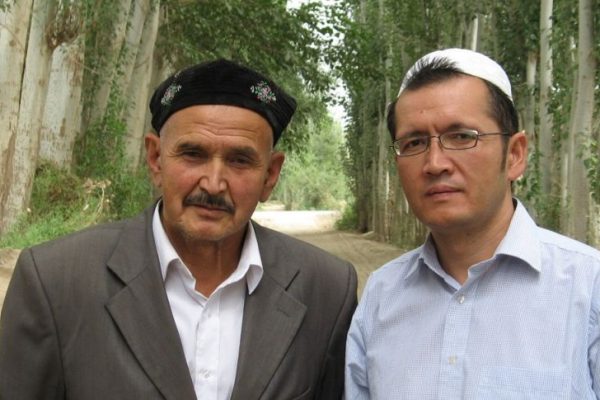From insecurity and years of conflict to natural disasters, drought, and floods, Afghans face multiple crises leading to an ever-increasing toll of casualties.
From insecurity and years of conflict to natural disasters, drought, and floods, Afghans face multiple crises leading to an ever-increasing toll of casualties.
Following the expenditure of trillions of dollars and loss of hundreds of lives, the United States and its allies have left Afghanistan after two decades since they arrived for the “war on terror”.
With the Taliban takeover following the retreat of international troops, a much-dreaded humanitarian disaster is unfolding in Afghanistan. Thousands of Afghans left their homes as the Taliban seized an increasing number of districts in recent weeks. The recent displacements have exacerbated the need for humanitarian assistance and ensuring access to vulnerable people.
Internally Displaced Persons (IDPs)
Days before the Taliban takeover of the capital of Afghanistan, thousands of people from different parts of the country fled to Kabul. Only this year, more than 500,000 people have already been displaced.
About 80% of the people displaced in the country this year comprise of female population and children. They are vulnerable people, given their trauma, stress, anxiety, and injuries. For the IDPs, the most pressing requirements include food, water, shelter, and health support.
Temporary Shelters
Due to the intense fighting in rural areas and key cities until recently, thousands of Afghans sought refuge in Kabul.
Likewise, temporary shelters have surfaced in the capital’s urban Shahr-e-Naw Park and Sarai Shamali, located north of Kabul. Accommodation continues to be a major concern with winter swiftly approaching.
Food Insecurity
Even before the US withdrawal, the country was facing food shortages due to drought, the pandemic, and decades of conflict. Given the widespread food insecurity in Afghanistan, malnutrition remains prevalent among almost 50% of children below five years. Besides, one-third of the Afghan population is tackling severe food insecurity.
At the beginning of this year, half of the people of Afghanistan were already in need of humanitarian help. Women make up about 4 million of this vulnerable population, with children amounting to 10 million.
In addition, humanitarian needs have increased drastically due to conflict and drought. As per the World Food Programme, the drought has adversely affected the livestock, and there has been a loss of more than 40% of standing crops.
The COVID-19 Factor
The socioeconomic impact of COVID-19 is further compounding the situation as the country is battling the third and worst wave of the coronavirus.
The World Health Organization (WHO) is concerned about the spread of the virus in Afghanistan as the recent developments have slowed down vaccinations. Considering the Taliban’s opposition to vaccinations, medical authorities dread a swift and uninhibited outspread of the virus in the country.
Shahid Meezan, a UN consultant who has worked for many years in Afghanistan and is currently in Dhaka, said that a lot is dependent on the choice of the local commanders of each district. In his interview to SciDev.net, Meezan opined, “For example, in eastern Afghanistan’s Paktia district, the Taliban have put up notices warning against vaccinations and discouraged health teams.”
Healthcare
Health care is an obvious and critical need. In the weeks leading to the Taliban takeover, thousands of people were injured since fighting went on in cities.
According to the WHO, currently, the medical equipment is not commensurate with the demand. The most urgent requirements include reproductive and pediatric health services. Similarly, in order to cater to the increasing malnourishment in kids, nutrition supplements are direly needed.
Economic Condition and International Assistance
The economic condition of Afghanistan is uncertain already and relies significantly on foreign support, the majority of which is currently facing ambiguity. Likewise, those living abroad cannot send financial help to their families in Afghanistan. There is uncertainty around sending assistance to the millions who are in Afghanistan right now.
Also, most of the banks are not open. The local population has used up their hard cash. They are unable to collect their money from banks and make essential purchases. The cash crisis has an immense impact on ordinary people as numerous people no longer have access to essentials.
Moreover, the US has frozen the assets of the Afghan central bank, Da Afghan Bank (DAB). It has halted the flow of cash to the country to stop the Taliban regime from getting access to money. As a considerable portion of the Afghan central bank’s assets is not in the country, international reserves of Afghanistan would not be accessible for the Taliban. It will likely lead to hiking inflation and currency devaluation, thus increasing food prices and troubling the poor.
Also, the international community is slowing down humanitarian aid to Afghanistan. The general humanitarian operations in the country have been decreasing for many years after the highest global response in the early 2000s. International NGOs that used to work in many country districts have reduced their presence over the years. Therefore, a large number of the vulnerable population is unable to access assistance.
From insecurity and years of conflict to natural disasters, drought, and floods, Afghans face multiple crises leading to an ever-increasing toll of casualties. According to UNICEF, the most vulnerable population in Afghanistan, i.e., children, women and the elderly, are the worst hit by the collective effect of multiple crises. It has called for upholding safe humanitarian access.
Overall, Afghanistan continues to be in a state of humanitarian crisis. Besides, as the Taliban have taken control of the country, evading them within Afghanistan is unlikely.
Looking forward to getting locals back to essential jobs, the Taliban declared a “general amnesty” for government officials on Tuesday, August 17. However, the recollections of the last Taliban regime are rather entrenched. Thus, how many of the displaced people will return to their homes is to be seen.
The world, for now, needs to focus on reaching out to meet the humanistic needs of the Afghan people. Years of conflict, frequent natural disasters, and poverty has positioned Afghanistan closer to the top on the Global Crisis Severity Index. With the persistent challenges to humanitarian access, the delivery of imminent needs remains insufficient and irregular.





